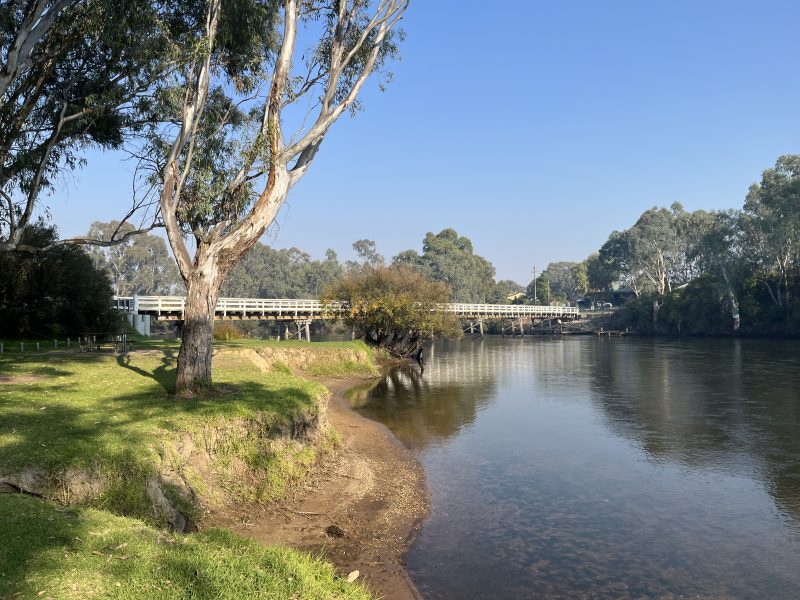Wetlands are important ‘blue carbon sinks’ – that is, they capture and store carbon, both in the living vegetation and in the sediments that have built up, often over thousands of years. Therefore, healthy wetlands contribute to decarbonisiation of the atmosphere. However, when wetlands become degraded due to land-clearing, grazing, or changes to natural water-flow regimes, they begin to release much of their stored carbon which is bad news for the climate.
To combat this effect, Parklands Albury Wodonga has begun a project to restore blue carbon sink wetlands and waterways at Kiewa River Regional Park and Waterworks Regional Park. The project will address the degradation of natural wetlands on the Lower Kiewa River floodplain that was once cleared for grazing and is currently being impacted by urbanization, as well as along parts of the Murray River. Restoring these wetlands with plantings of native riparian species will have several benefits such as slowing water runoff and cleaning it before it enters the major waterways of the Kiewa and Murray Rivers, leading to an improvement in local water quality. Revegetation of these areas will also increase biodiversity and lead to the closing of gaps in habitat corridors, enabling native animals to travel and adapt to the changing climate.

Duduroa Dhargal Aboriginal Corporation (DDAC) Elders have been providing advice on the specific wetland plant species suitable for this project. Seeds were then sourced from a hotter, drier provenance so that they are more resilient to a warming climate, and volunteers at Our Native Garden Nursery have been propagating the plants over the previous summer and autumn months, ready for winter 2024 planting. Seeds from these new plantings will then provide a seed bank source for future wetland restoration on other sections of floodplains, wetlands, and waterways.
Before planting can begin, the sites are being prepared by installing clean fill into several agricultural drains to re-establish former wetlands. Weed control is also being undertaken to ensure the new seedlings get off to the best start.
This project is activating locally-led opportunities to contribute not only to climate action, but also to biodiversity conservation. As well as DDAC and Our Native Garden Nursery volunteers, the project involves Evolve disAbility employees who will have a chance to expand their skills from mowing, which they undertake at Waterworks Regional Park during the autumn and spring, to other ranger duties including planting. The broader community will also have a chance to be involved in upcoming planting days.
Parklands Albury Wodonga thanks the Foundation for Rural and Regional Renewal for funding for this project through their Community Led Climate Solutions Grant program.






